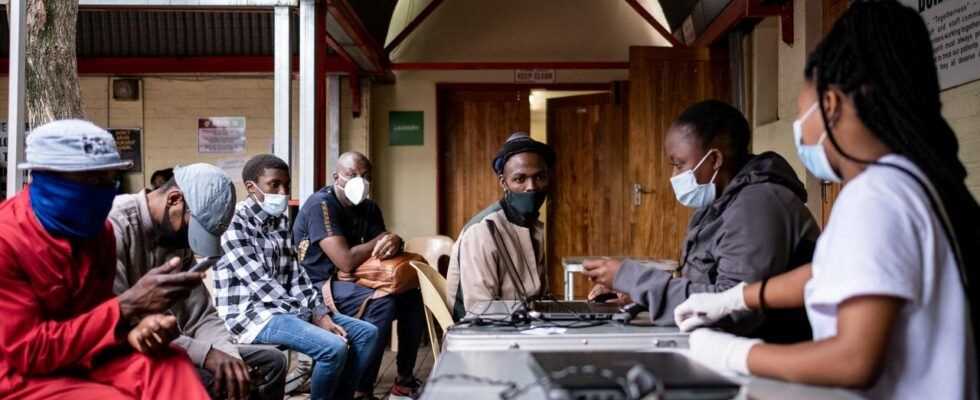OVERVIEW – After invading South Africa or the United Kingdom, the Omicron variant is now spreading very quickly on French soil. What conclusions can we draw from this wave abroad?
IN –
After South Africa and the United Kingdom, it is France. For several days, the number of cases caused by the Delta variant finally seems to be declining in the country, but the total number of contaminations remains on the rise. Involved, the Omicron variant, which spreads “very fast”, in the words of government spokesman Gabriel Attal. The bar of 100,000 contaminations per day could be reached quickly, while this mutation should be the majority in France “between Christmas and New Year”.
All the info on
Omicron variant: the planet on alert
Contamination on the rise
In the United Kingdom, the first European country to be massively affected by Omicron, this is even already the case. Wednesday, December 22, 106,122 new cases were recorded across the Channel, a record. This indicator has doubled in ten days. This variant is already in the majority in the British capital, London, ahead of Delta. A situation that France is also experiencing, since nearly four out of ten cases in Paris are now suspected of being linked to Omicron.
South Africa, where Omicron was discovered in November, has also experienced a meteoric rise in contamination. In mid-November, the country recorded only a few hundred daily cases, before surpassing 4,000 two weeks later. The peak was reached on December 12, with more than 37,000 cases recorded in one day, unprecedented for South Africa. The number of contaminations has since stabilized around 20,000 per day.
Hospitalizations increase much more slowly
If there is a scientific consensus around the increased contagiousness of this variant, the authorities observe as a priority its dangerousness. Because it is the saturation of hospitals that leads, or not, the various governments to tighten the screw. And, on this point, the first data seem reassuring. Wassila Jassat, a member of the South African National Institute of Communicable Diseases (NICD), said in recent days that the number of people requiring oxygen was “lower than it was compared to previous waves.” “Patients also seem to stay shorter” at the hospital, she added.
Read also
The South African data are however analyzed with caution by the European authorities, the age pyramid not being similar to that of our continent. The population of South Africa is younger, a priori less prone to severe forms. But, in the United Kingdom too, hospitalizations are increasing much less quickly than contamination. An observation confirmed by scientists. Two studies conducted in the UK and published on Wednesday showed that infections with the Omicron variant are less likely to cause hospitalizations compared to the Delta variant.
Fewer deaths officially linked to Omicron
As of Monday, December 20, South Africa recorded 105 deaths linked to Covid-19. Which means if Omicron seems less virulent, it kills anyway. But in proportions lower than the previous mutations. By comparison, up to 600 deaths per day were recorded in South Africa in July, and even more than 800 in January. Note, however, that vaccination was not as widespread as it is now. According to the NICD, 87% of Omicron-related deaths were observed in people who had not been vaccinated or not completely, compared to 13% in those who had completed their vaccination schedule.
The findings are the same in the United Kingdom: the death curve has kept the same pace since the end of the summer, despite the arrival of Omicron. Since the start of the pandemic, this indicator has followed the rate of contamination for about three weeks. On this point, it therefore still seems too early to draw any conclusions from the UK mortality data.
On the same subject
The most read articles
Covid-19: hospitalizations among children explode in New York
LIVE – “Omicron is undoubtedly dominant in Île-de-France”, alert Dominique Costagliola
10,000 steps per day: is the goal scientifically proven?
New Year: the curfew, a serious avenue for the government?
One year after the vaccination of Mauricette, back in figures on the French vaccine campaign

